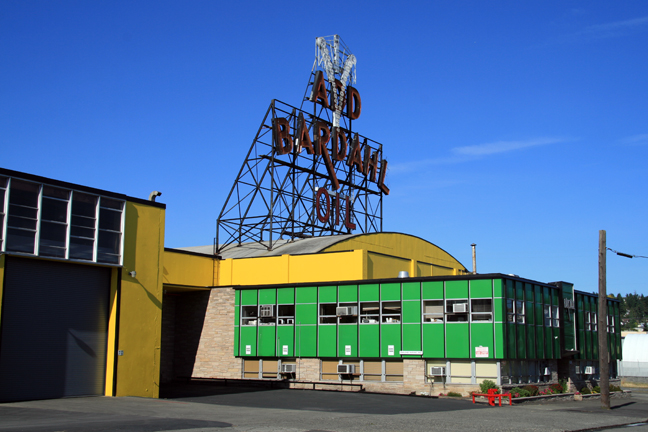Indonesia poses many barriers to entry, but American lubricant supplier Bardahl Manufacturing Corp. said its prepared to meet the markets various challenges in the hopes of reaping its potential.
Seattle, Washington-based lubricants, greases and lube additives supplier Bardahl, which has a manufacturing base in Singapore, decided in 2015 to enter the Indonesian market. Indonesia is part of a 10-nation free-trade zone and has an automotive market forecast to expand at a compound annual rate of 5 percent through 2020, making it one of the best opportunities in Asia to pursue, according to Eric Fletcher, President and CEO of Bardahl Asia Pacific Pte.
Since then, Bardahl established a wholly-owned subsidiary, PT Anugrah Lubricant Indonesia, and invested in a local warehouse to serve as a hub for lubes imported from its toll-blenders in Singapore and additives imported from the United States and Europe.
Photo: Bardahl Manufacturing Corp.

However, Bardahls recent foray into Indonesia is not its first. We stopped selling lubricants in Indonesia about 11 years ago, Fletcher said during an interview with Lube Report Asia. Our then-distributor decided to pursue distribution of their own branding and [Bardahl was] unable to find or locate distributors.
Such is the norm in Indonesia, said Hutomo Hadi Saputro, an associate consultant at Ipsos Business Consulting. Because its such a competitive market, Indonesias lubricant marketers often only appoint distributors that will carry their brand exclusively.
Resellers also sometimes have different selling and purchasing contracts in different parts of Indonesia, an archipelago nation with fragmented infrastructure spread across 17,508 islands. Indonesia is a vast country, Fletcher said. We foresee that logistically it will be a challenge. Bardahl currently has 21 distributors located from Sumatra to the easternmost province of Papua. We will have to ensure that products are delivered to customers in various parts of the country in a timely manner while managing the warehousing, logistic and shipping costs in order to keep our prices competitive.
Indonesia has other extra costs that influence pricing, Hutomo said, such as its many requirements for certifying and registering products. Fletcher concurred. Our lack of local experience in terms of setting up our own operations was another challenge, Fletcher continued, citing processes such as registering Bardahls myriad products with local agencies, setting up a foreign-owned company there and understanding the countrys taxation structure. Although Bardahls imports from Singapore wont be subject to tariffs, they will be subject to other costs, such as a 10-percent sales tax and a 10-percent duty for cost, insurance and freight.
Regardless of whether theyre imported or not, lubricant margins are known to be tight in Indonesia, Hutomo said. And price is the most considered factor for end-users. Indonesian consumers are not typically aware of the long-term cost savings of using a more expensive lubricant product or of what differentiates one lubricant product from another, he added. Proactive education of products cost-saving benefits and maintaining customers trust is key.
In Indonesias commercial market, fleet owners are sometimes deemed passive when it comes to gaining knowledge of lubricant brands and products, Hutomo added. The lubricant distributor should take the first step in establishing and maintaining a relationship with potential customers. In the passenger car segment, workshop mechanics influence consumers choice of lubricants, as the typical Indonesian driver is less knowledgeable when it comes to maintenance.
Bardahl, on the other hand, is more optimistic about Indonesian consumers. [Indonesia has] a well-educated society whose drivers really understand the need for quality products, ensuring the extended life of their vehicles and industrial equipment, Fletcher said.
Still, to gain a foothold in the countrys aftermarket segment, Bardahl said it needs to establish better brand presence through a hands-on approach. Fletcher noted that the company has been doing local demonstrations, such as a 10,000-kilometer motorcycle tour, for consumers and mechanics.